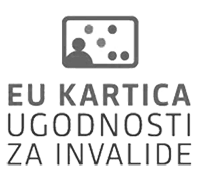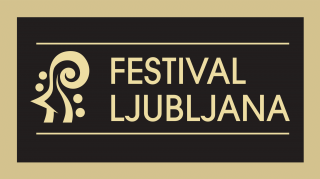Opening of the exhibition will be on Friday, 11 July, at 12.00 pm in Knights’ Hall, Križanke.
Years ago, in particular when we were still merely speculating about what artificial intelligence might bring, I may have been more sceptical when it came to defending the role of culture and art in the world of the future. Today, however, I am increasingly convinced that it is only culture that can save humanity from complete dumbing down. Einstein’s comment on the infinity of human stupidity is, unfortunately, proving to be true. Never before in the entire history of human existence have human beings had as much knowledge and as many technical achievements and tools at their disposal as we have today. Or as destructive an impact on our environment and, consequently, on ourselves. The madness and greed that rule the world are frankly horrifying. Politics is no longer capable of returning humanity to the world of human values. Grasping selfishness and the appearance of material success have taken the place of honesty and humanity. The values of correctness and sincerity have been lost – they are out of fashion. The development of quasi-values that spiritually impoverish and “dumb down” are building a very uncertain future.
Unfortunately, drawing attention to the inevitable consequences tends to trivialise them rather than give them serious consideration. That is why I believe that only the power of culture that can give humanity the chance to break out of this vicious circle. People are increasingly disinclined to believe the spoken or even the written word, because of the constant suspicion of fake news from the internet. Essentially, we no longer have enough time for anything that isn’t related to the accumulation of material goods.
That is why cultural content is becoming so very important: because it will be hard to ignore. Quietly and unobtrusively, it gets under our skin and finds its way into our hearts. We cannot defend ourselves against something that spiritually enriches us, elevates us, realises us and fills us with the inner contentment and peace that we so badly need.
Just as artistic creation is essentially a process and a combining of knowledge, experience and the desire to convey a message from the soul, so is the perception of a work of art ultimately about the emotional world and soul of the viewer or listener. We don’t yet know how it will be with artificial intelligence, whether the algorithms it absorbs will be enough for it to become capable of emotional feeling. Without emotional perception, an artistic creation is merely an end in itself and, as such, utterly useless. That is why I am convinced that artificial intelligence will remain incapable of true artistic creativity. Its lack of intuition, empathy, deep feeling and understanding mean that it will only ever be able to create approximations. There are already too many of these in today’s world. We are, in fact, increasingly living in a world of fakes. This, though, is where the “soul” comes in. And it cannot be deceived. Why does an excellent performance of a piece of music give us goosebumps and make our hairs stand on end? This isn’t something we can do consciously or deliberately, and it will not happen with a fake.
Unfortunately, there is also fakery in the evaluation of works of art. The desire for money and profit, with the assistance of specific media that are dependent on the desires and interests of their owner, undermines the sincerity and genuineness of many artistic creations and replaces them with quasi-artworks. This reduces the artist’s room for manoeuvre, leaving fewer and fewer opportunities for free and sincere creation.
This year sees the twenty-eighth edition of the international fine arts colony. Just as in all the previous editions, this summer’s Ljubljana Festival offers visual artists the opportunity to work within an intensive creative world in which all genres of art mix and mingle, in an atmosphere of synergy and the exchange of personal experiences. Ljubljana is not just a green capital, it is a city that has for some time been intensively building up its cultural content and image through significant investments in culture. Organised by the Ljubljana Festival, the colony offers eight painters – four from Slovenia and four from various other countries – the opportunity to spend a week as our guests, blending the world of musical impulses provided by the evening concerts with their own world of visual creation.
This year this hospitality will be extended to artists from France, Bulgaria, Italy and China, as well as to four from Slovenia. Once again this year, we will be joined by the well-known multimedia artist Lado Jakša, who will be with us for the entire week. At the opening of the exhibition that concludes the fine arts colony, he will offer a musical and visual presentation of his own vision of the artists’ work and creative process.
Tomo Vran, selector


